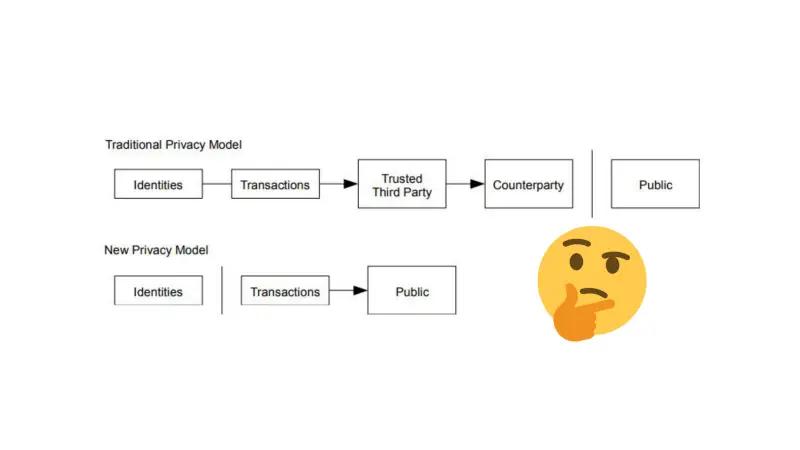Satoshi Nakamoto is the Deep State
A video review

A video review
Somebody recently sent me a video titled ‘Satoshi Nakamoto is the Deep State’ and asked me to comment.
That video is posted below and also linked here if for whatever reason the embed feature does not work on your device.
I'll give my comments along with a short review of the video and its content below. Feel free to watch the video first and then read my comments or vice versa. This won’t be a play-by-play, just some thoughts. Watch the video, read this and tell me what you think in the comments.
The video is from an Australian-based YouTube channel called ‘In the Interests of the People’. The two fellow Aussies you see on the screen are John Adams, an economist and Australian political commentator, and Martin North a financial consultant, YouTuber, and blogger.
The synopsis of the video is set around a question asking ‘Who is Satoshi Nakamoto and could they be the NSA?’.
It’s not the first time this question has been asked. I’ve asked it myself. Many people have asked it and both John and Martin are correct in questioning the timing of the release of the Bitcoin protocol which was just after the 2008 GFC financial crisis.
Getting stuck into the video. The first parts are a little generalized and that's probably because of the audience (boomers?). Around the 15-minute mark, they finally begin to discuss the NSA, Edward Snowden and eventually ask the question.
John then emphasizes the question by displaying a tweet that says, the literal translation of Satoshi Nakamoto = Central Intelligence.
Shortly after the two begin to assume for the sake of the video that the US Government is involved in the creation of Bitcoin and ask what would be the motivation leading into a monologue about psychological warfare and Central Bank Digital Currencies (CBDCs).
All fantastic points. The video goes on for a little longer with the two discussing their thoughts and opinions. Here are mine.
Many people have theorized that 3-letter agencies directly created Bitcoin or had a part to play in it. Many of us believe Bitcoin to be a spy-coin. Anyone can look at the ledger, investigate it, analyze it, and data-mine it, they can do whatever they want with it because it is open and public for all to see which is exactly how it was designed.
Play around with any block explorer and see for yourself.
The Bitcoin whitepaper has a section about ‘Privacy’ on page 6 which details these aspects. This page has a type of flowchart on it (below) detailing the old v new privacy models.

The Bitcoin privacy model tries to sell to the reader the idea that Identities and Transactions are separated which is either a big assumption or a professional lie.
We now know, years on, that this is not true.
In a practical sense, yes, sure, if everything is correct and I send you Bitcoin from a wallet that I control, on a device I control and which is not compromised and you receive it with your wallet that you control, etc. and we both trust each other not to tell, the process should be private.
But we know that in reality, that is not how it works.
Most people go to a big high-volume exchange to buy their Bitcoin and other cryptocurrencies, and most of these exchanges comply with Know Your Customer (KYC) and Anti Money Laundering (AML) rules and regulations which means that they take all of your identifying information, they store it, and, in some countries, they share it with the Government. When you buy or sell on their platform, they log all of that information and when you decide to withdraw your Bitcoin and send it to your wallet address, that address is logged and along with it, its entire history.
Assuming you’re a little more clued in to what is going on and the receiving address has no history because it is a new address, guess what, it does not matter because your identity is still logged with the exchange, which means that you can be subpoenaed at any time and if not you, then someone who knows you and can link you to any publicly available address.
You might be thinking, that there is simply too much information to wade through on the blockchain public ledgers.
For a human, yes. But not for a bot or AI. And this is why clean Bitcoins and crypto, in general, demand a higher value, which raises a whole other topic around fungibility which we won't go into for now.
All in all, good video, and good content.
It forces the viewer to begin to think about things in a slightly more paranoid manner, privacy-centered manner. Many people, myself included believe that although Bitcoin and many other cryptocurrencies are effectively spy-coins, and that it is very likely World Governments and banks are going to release a new all-encompassing financial system onto the world where crypto and blockchain technology is part of it, crypto still has a very bright future due to privacy projects such as Monero which is equivalent to Bitcoin only it’s, or Dero which is equivalent to Ethereum only private, and Equilibria, equivalent to Chainlink, etc.
We may never know if 3-letter Government intelligence and spy agencies created Bitcoin or had a part to play in it, to get us all addicted, we may never know. But if we have actual private cryptocurrencies like the ones I mentioned above and many others, does it even matter, and from an investment point of view, what do you think will happen to the price of these privacy coins once the masses find out?
Want to know how you can support Crypto Fireside?
Sign up below. It's free and easy 🔥.

